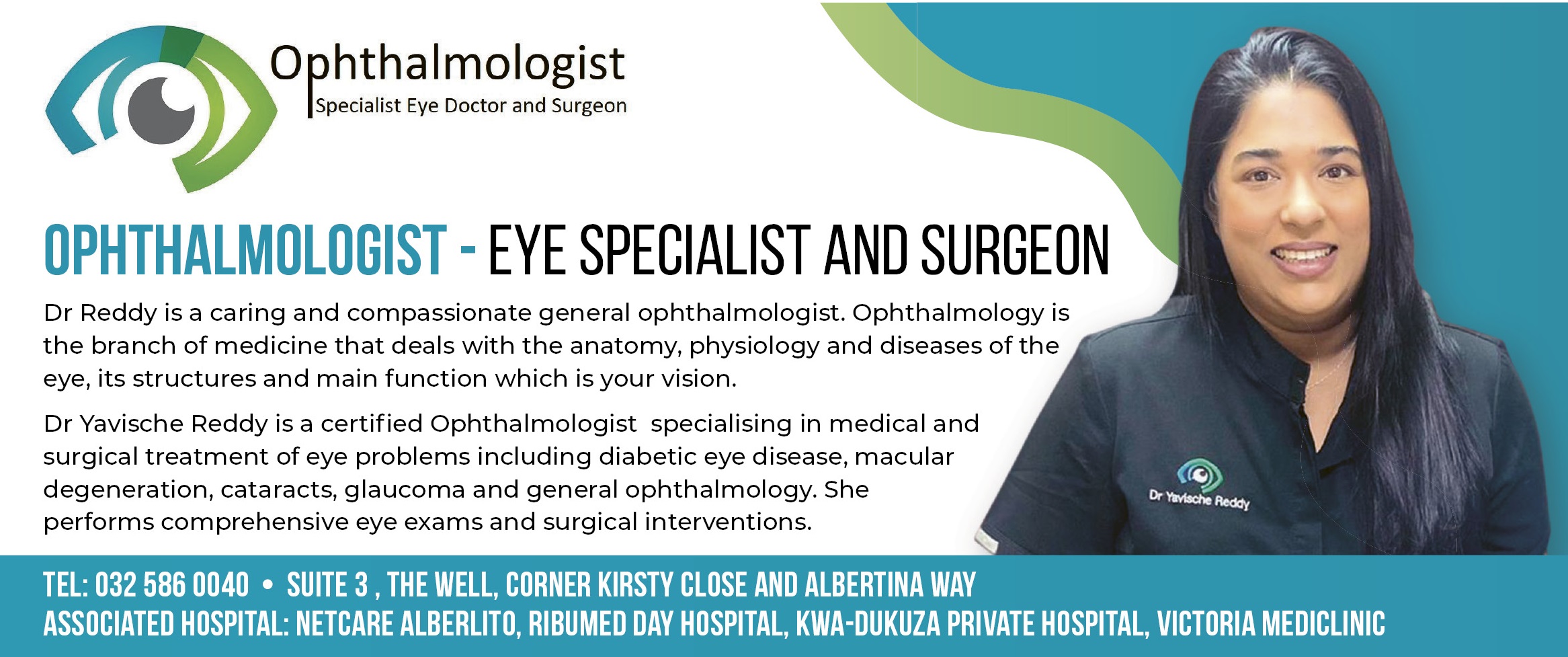It’s no secret that nutrition has a direct impact on our overall health, but did you know that eating the right foods can help maintain your vision? Dr Yavische Reddy, an ophthalmologist based in Ballito, explains the connection.
Eating a balanced diet rich in nutrients has plenty of health benefits, but when it comes to eye health specifically, research suggests that foods rich in vitamins C and E, zinc, lutein, zeaxanthin, and omega-3 fatty acids are the ones to look out for. These nutrients have been linked to lower risk of cataracts and age-related macular degeneration, as well as dry eyes in old age.
To make sure that you get plenty of vitamin C, choose fruits and veggies like oranges, grapefruit, kiwifruit, strawberries, tomatoes, red and green peppers and broccoli. Good sources of vitamin E include almonds, sunflower seeds, olive oil, and avocadoes, while zinc can be found in legumes, seeds, meat, dairy and eggs.
Lutein and zeaxanthin both naturally occur in the retina, which is the lining at the back of the eye. For this reason, it’s a good idea to incorporate these nutrients into your diet – find them in leafy vegetables like spinach and kale, as well as broccoli, raspberries, pawpaw, peaches and mangoes.
If you have diabetes, or your doctor has advised that you are at risk for the disease, it’s important that you eat a low GI diet as a number of health issues, including vision loss, can be caused by high blood sugar levels. Avoid blood sugar spikes by swapping sweet cereals for oats and go for brown rice and wholegrain breads and pastas.
“If you struggle with dry eyes, you are likely to benefit from adding more healthy fats, like omega-3 and omega-6, to your diet.”
If you find yourself struggling with dry eyes, you are likely to benefit from adding more healthy fats, like omega-3 and omega-6, to your diet. Great sources of omega-3 fatty acids include oily fish like salmon, trout and sardines, while most nuts and oils are packed with omega-6 fatty acids. Both of these nutrients are available as oral supplements, so it’s worth discussing with your doctor if you think you need a boost. Your ophthalmologist might also prescribe the AREDS2 vitamin if you are at high risk for age-related macular degeneration.
Details: Dr Yavische Reddy; Suite 3, The Well, Ballito;032 586 0040.



